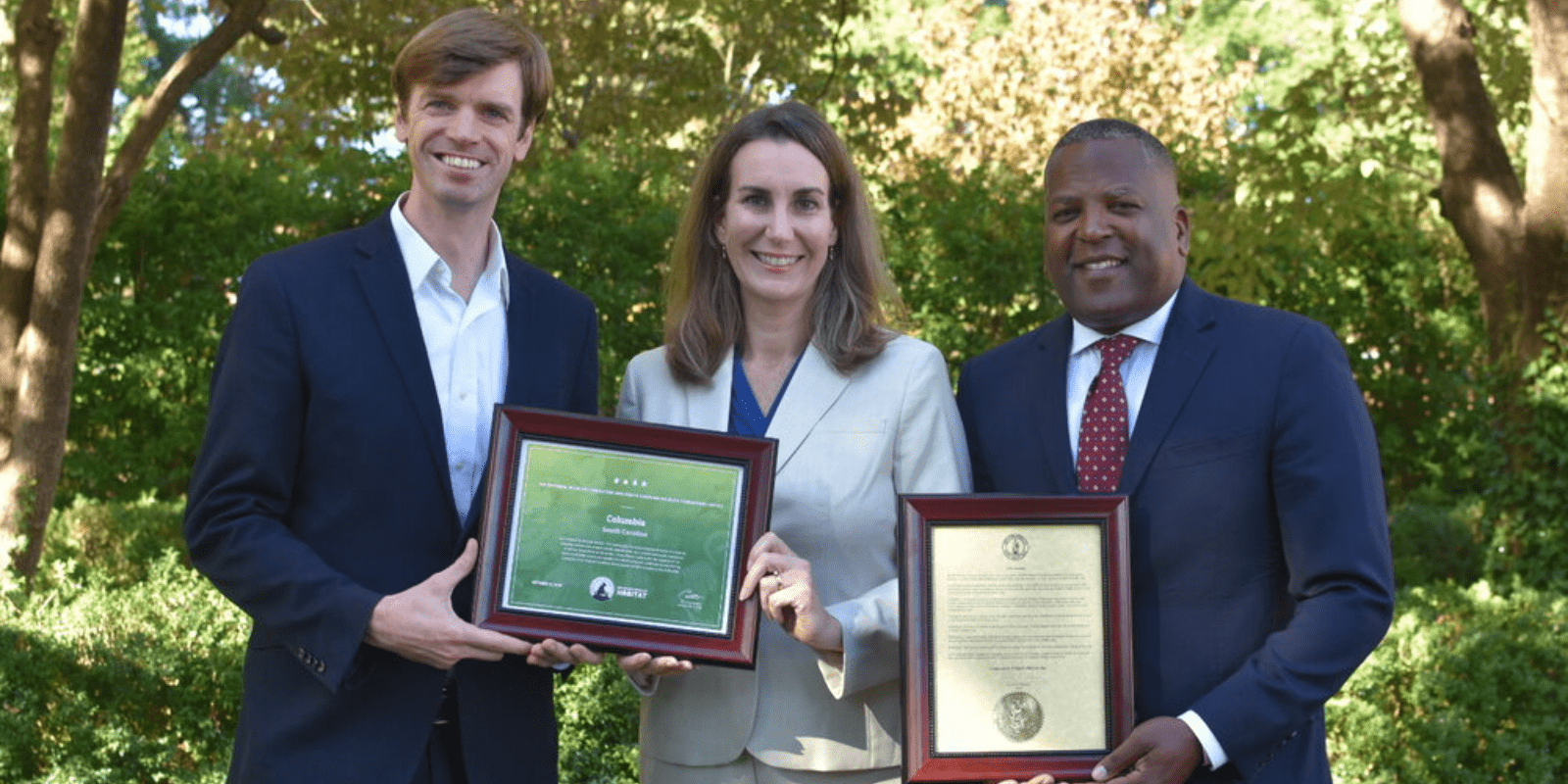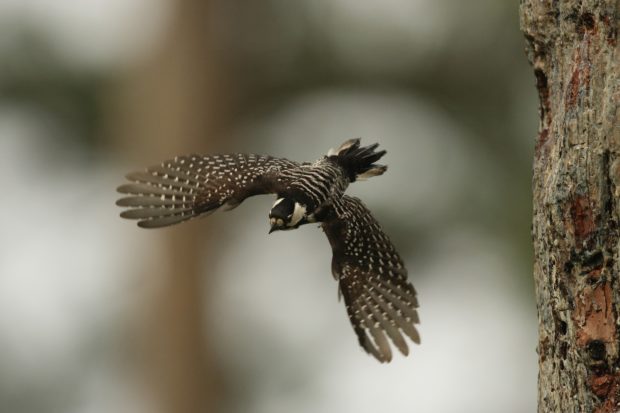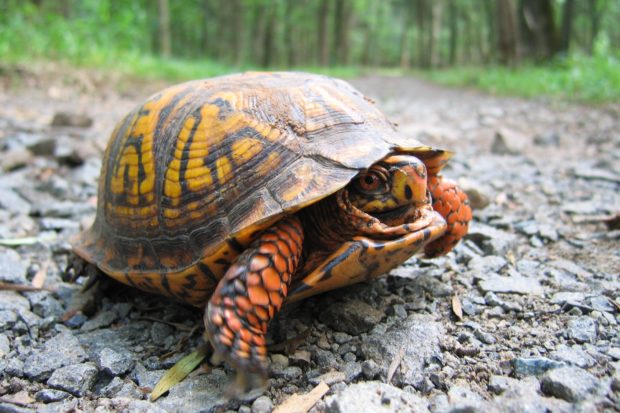We have much more to do and your continued support is needed now more than ever.
Columbia, South Carolina: A Home for Wildlife
South Carolina’s Capital Honored as the Largest Certified Community Wildlife Habitat in the State this Past Year

The National Wildlife Federation is pleased to announce that Columbia is no longer just the capital of South Carolina. As of October 2019, the city became the largest certified Community Wildlife Habitat™ in the state, as well.
Communities earn community-wide certification by registering individual properties (homes, parks, schools, businesses, and others) as Certified Wildlife Habitats and by providing environmental education and outreach. With 797 individual certified habitats already created by city residents, Columbia received this honor from leaders of the South Carolina Wildlife Federation (SCWF) and National Wildlife Federation at a ceremony in October.
During his speech at the event, Mayor Steve Benjamin emphasized that this ceremony was a major achievement for the people of Columbia.
SCWF’s Executive Director, Sara Green and National Wildlife Federation’s President and CEO, Collin O’Mara also spoke at the ceremony.
“At a time when wildlife needs our help more than ever, planting native
habitat and providing clean water can help ensure species—like pollinators, songbirds, and frogs—thrive,” O’Mara said. “By engaging more than 700 residents and community sites, while encouraging each of us to do our part, Columbia is a shining example for all Americans of how we can save imperiled species, together.”
Green added that the SCWF’s mission is one everyone can embrace.
“We can all take steps like planting native plants and other things to encourage wildlife in our own backyards and throughout our community,” Green said. “If we all take small steps like have been done here, we can all make a huge difference for wildlife.”
To become a Community Wildlife Habitat™, Columbia partnered with the SCWF to complete a series of steps, including ensuring that:
- Individuals and businesses certified their homes and grounds as wildlife habitats with SCWF
- SCWF staff led an invasive species removal
- SCWF will continue to monitor the status of Columbia’s wildlife habitat
- An estimated 400 people were reached through educational presentations
Some notable certified habitats in Columbia include the University of South Carolina, Harbison State Forest, Riverbanks Zoo, Mast General Store, Stormwater Studios, Palmetto Experience, Rosewood Market, and Forest Lake Presbyterian Church.
These certified habitats provide a safe haven for numerous endangered and threatened species in South Carolina, such as Eastern box turtles, pine barrens treefrogs, red-cockaded woodpecker, and monarch butterflies— just to name a few—by providing necessities like food, water, shelter, and places to raise young.

The SCWF is working to create native plant installations at several of these certified locations. The SCWF is also building a relationship with Columbia Parks and Recreation to help enhance the greenway along the Saluda, Broad, and Congaree rivers. They will help create educational trail signage about native plants and animals, participate in trash clean-ups in and around Columbia, and remove invasive plant species.
The National Wildlife Federation’s Community Wildlife Habitat™ program provides community leaders with a focused framework for restoring wildlife habitat and engaging community members as they work to attain the National Wildlife Federation’s esteemed certification as a wildlife-friendly community. The Community Wildlife Habitat™ program partners with communities of all sizes and kinds and is currently partnered with more than 200 communities nationwide.
Through the Community Wildlife Habitat™ program, communities are enhancing and restoring wildlife habitat in urban and suburban areas across the country, while also connecting to existing work around climate resiliency, community resiliency, urban forestry, water conservation, and beautification.
Visit Columbia’s Community Wildlife Habitat page on the National Wildlife Federation’s website to follow the state’s continued progress in developing certified habitats.






















